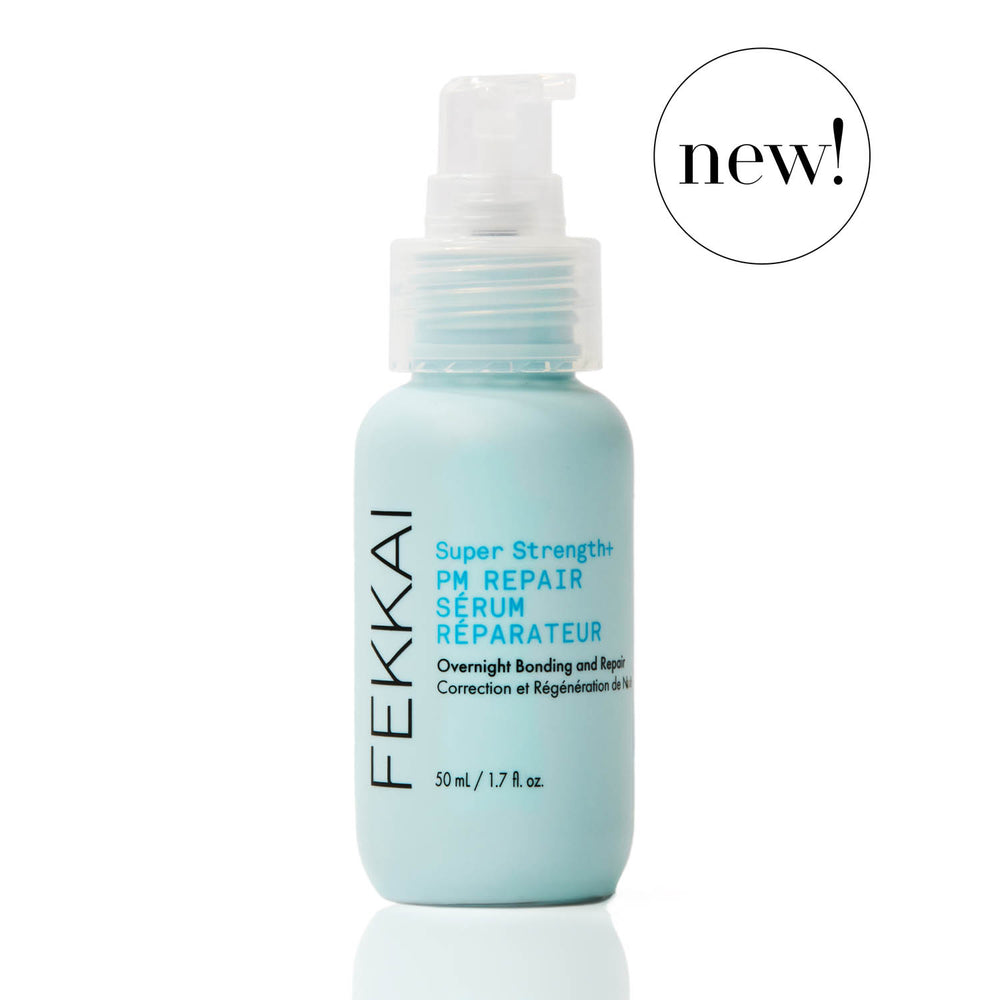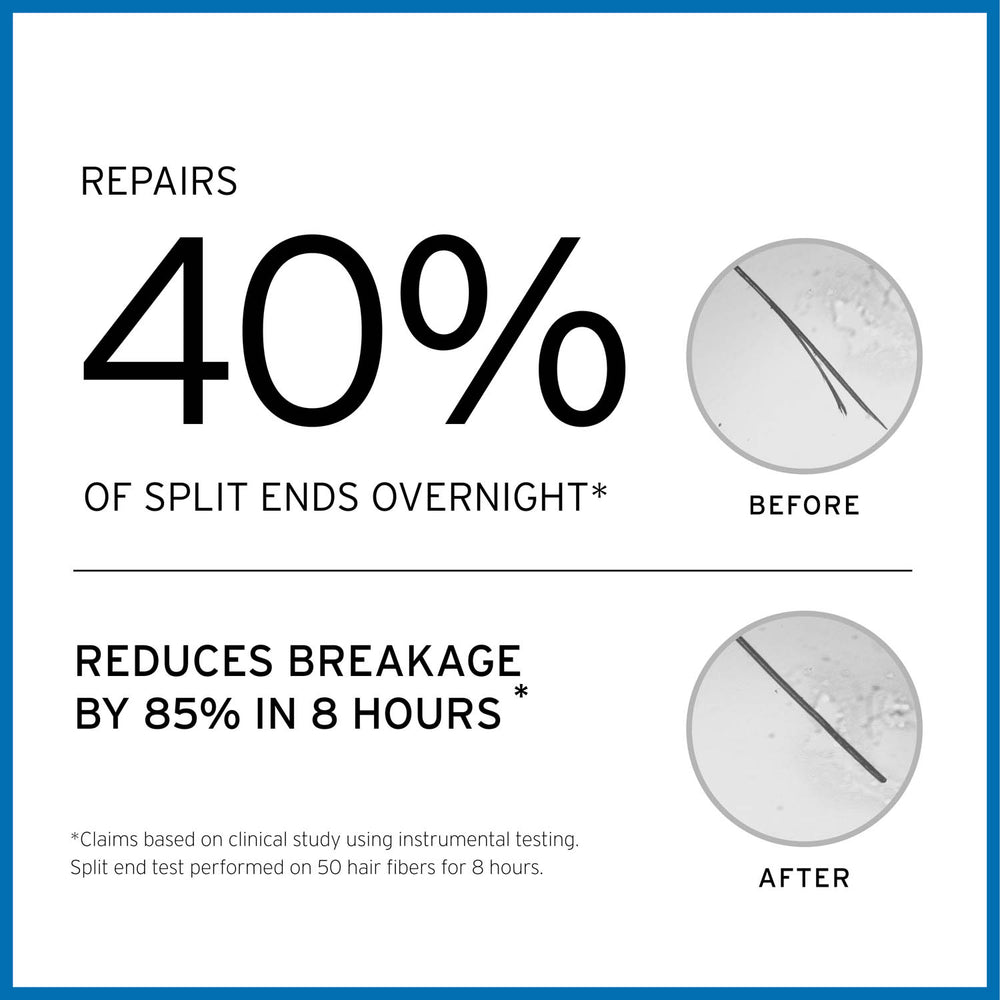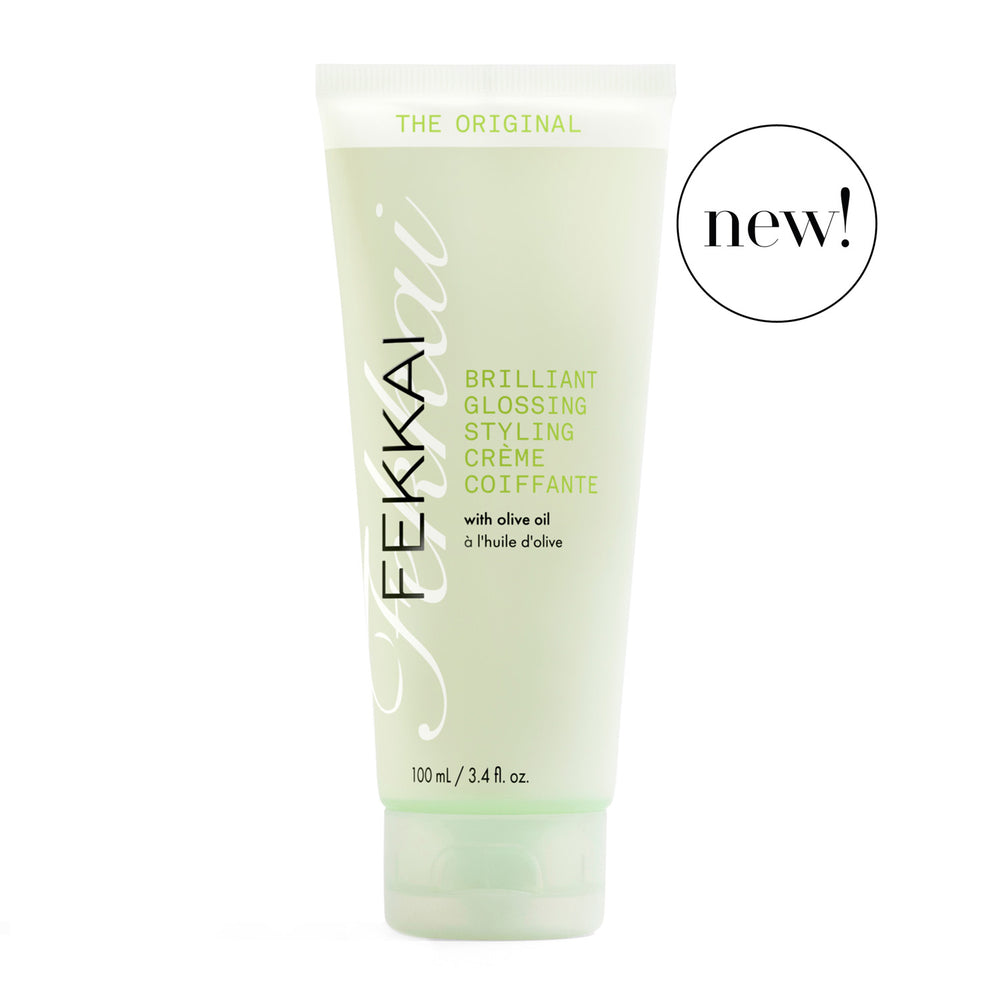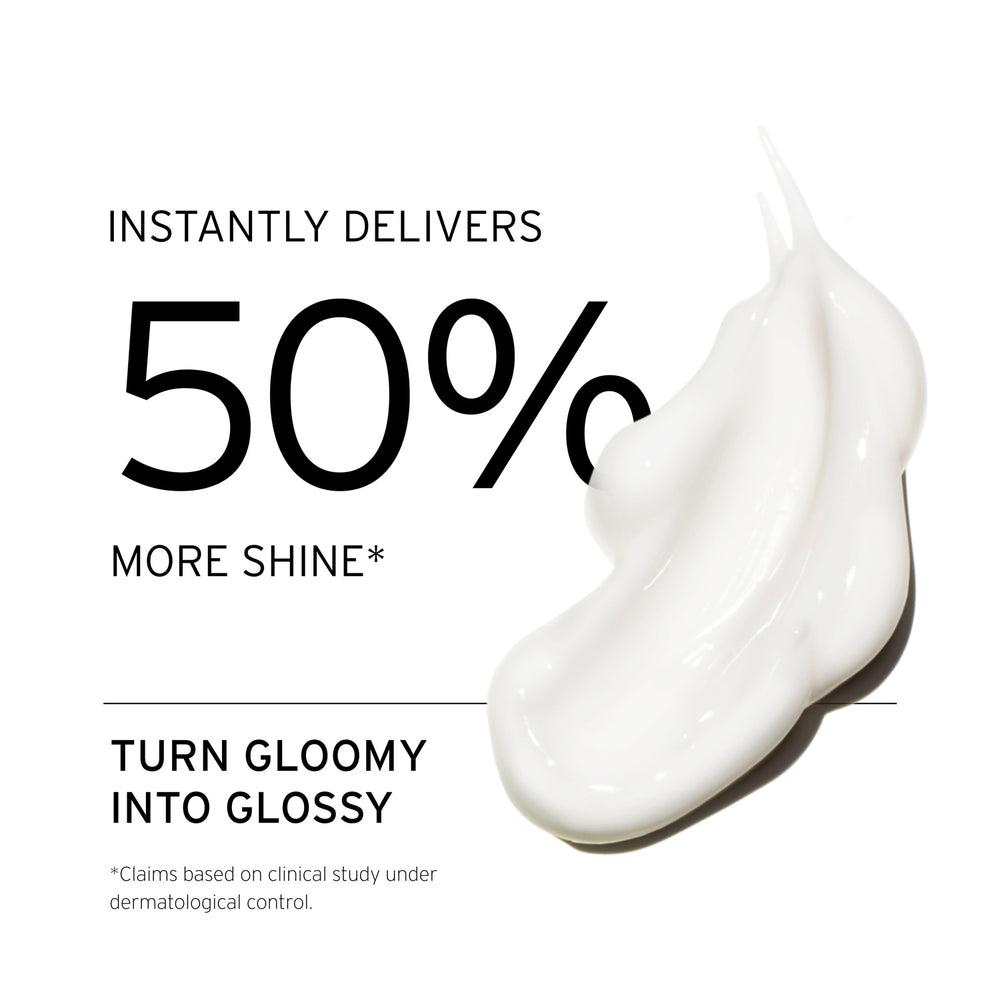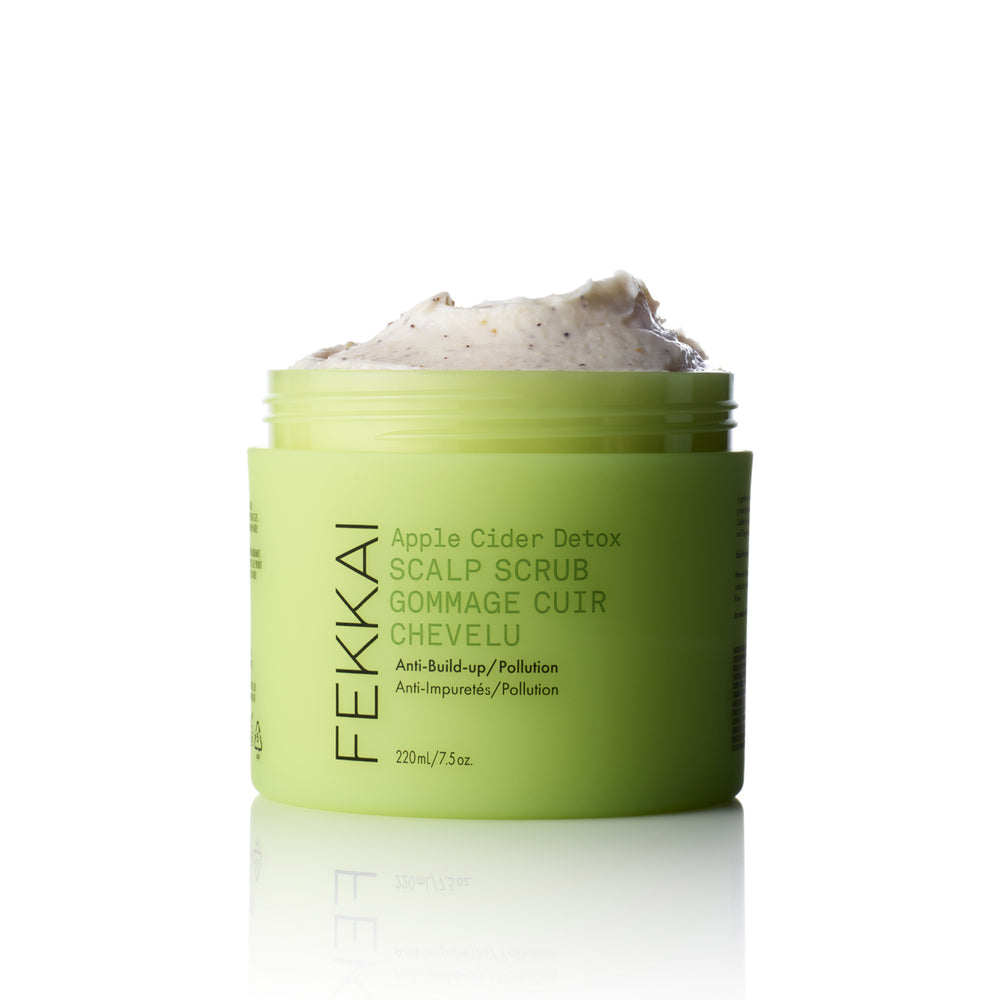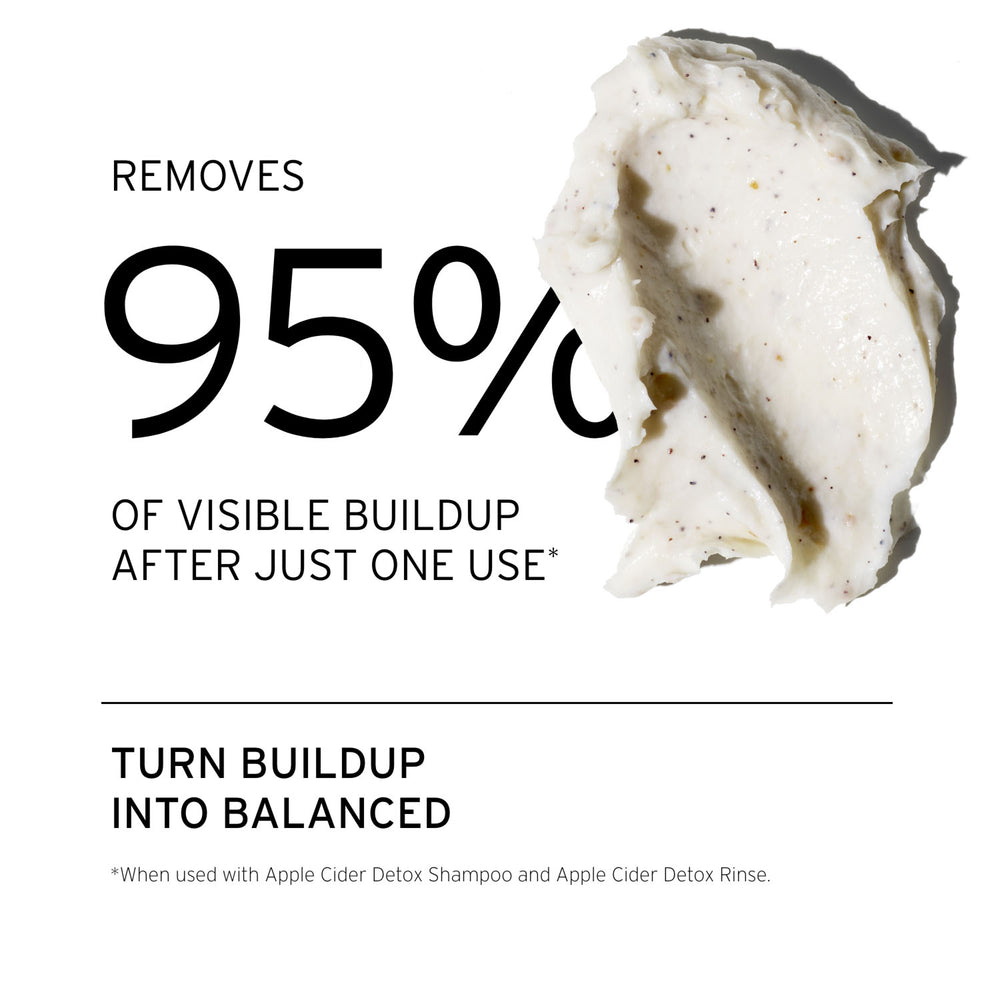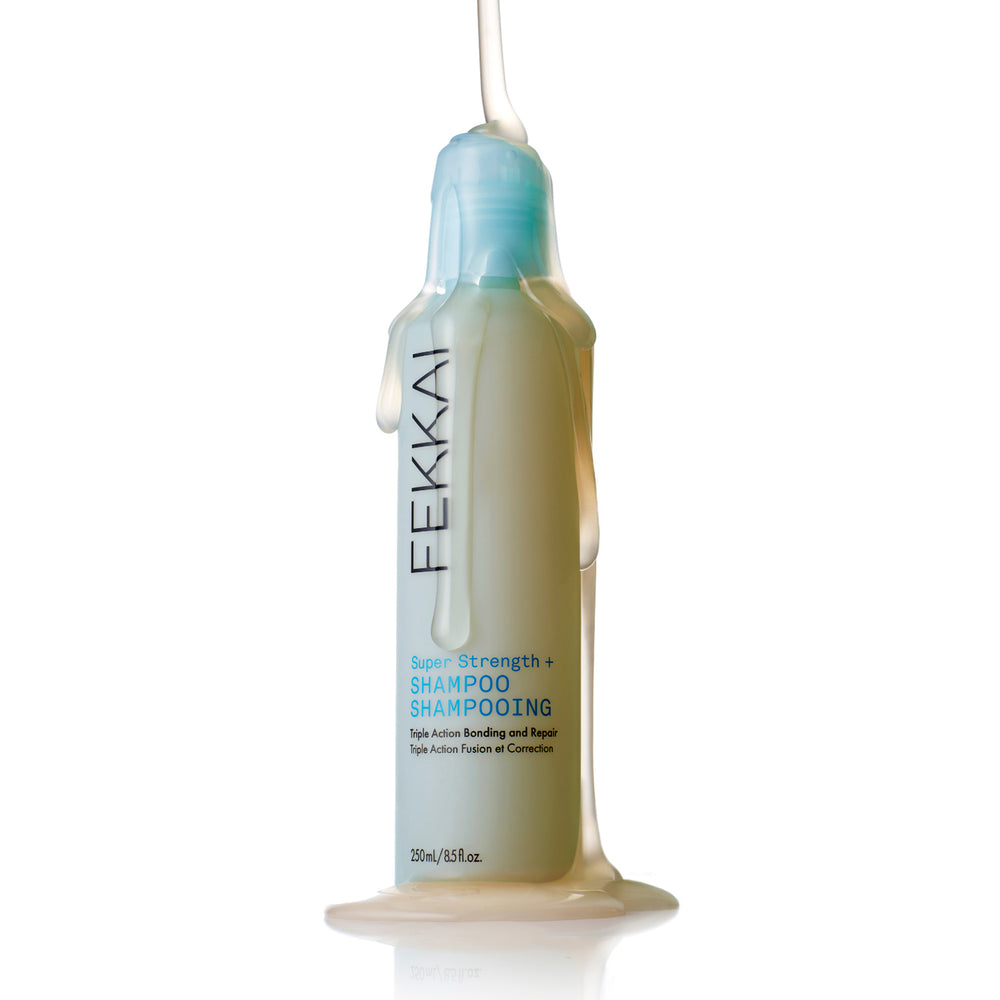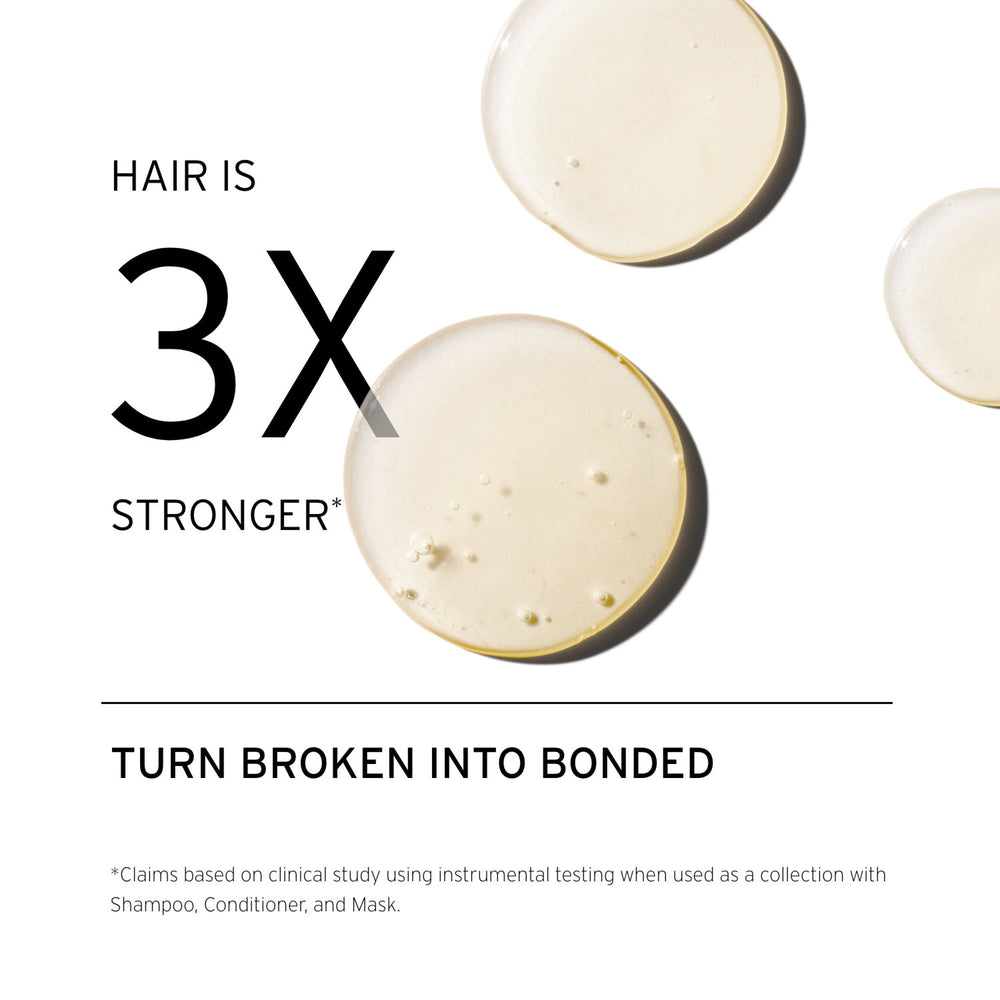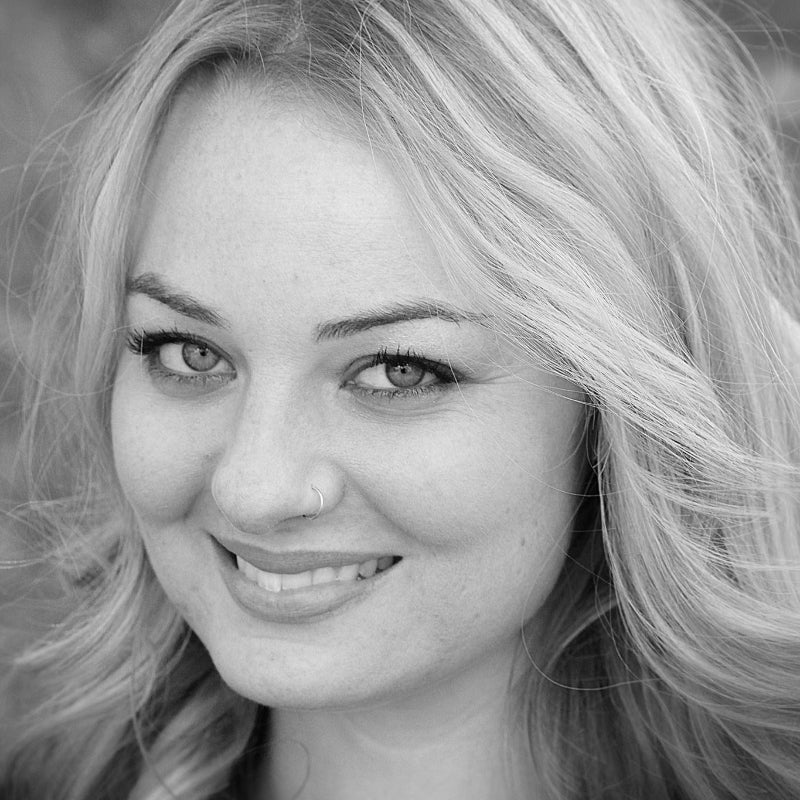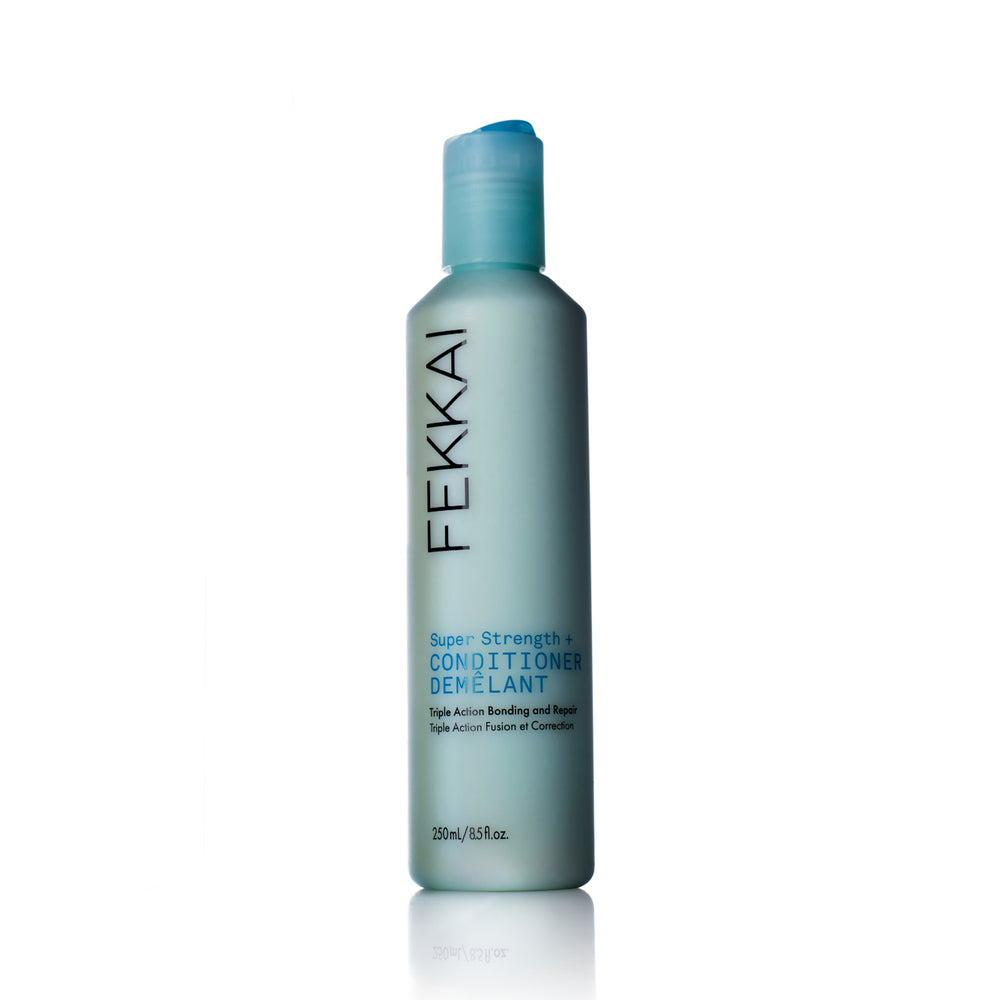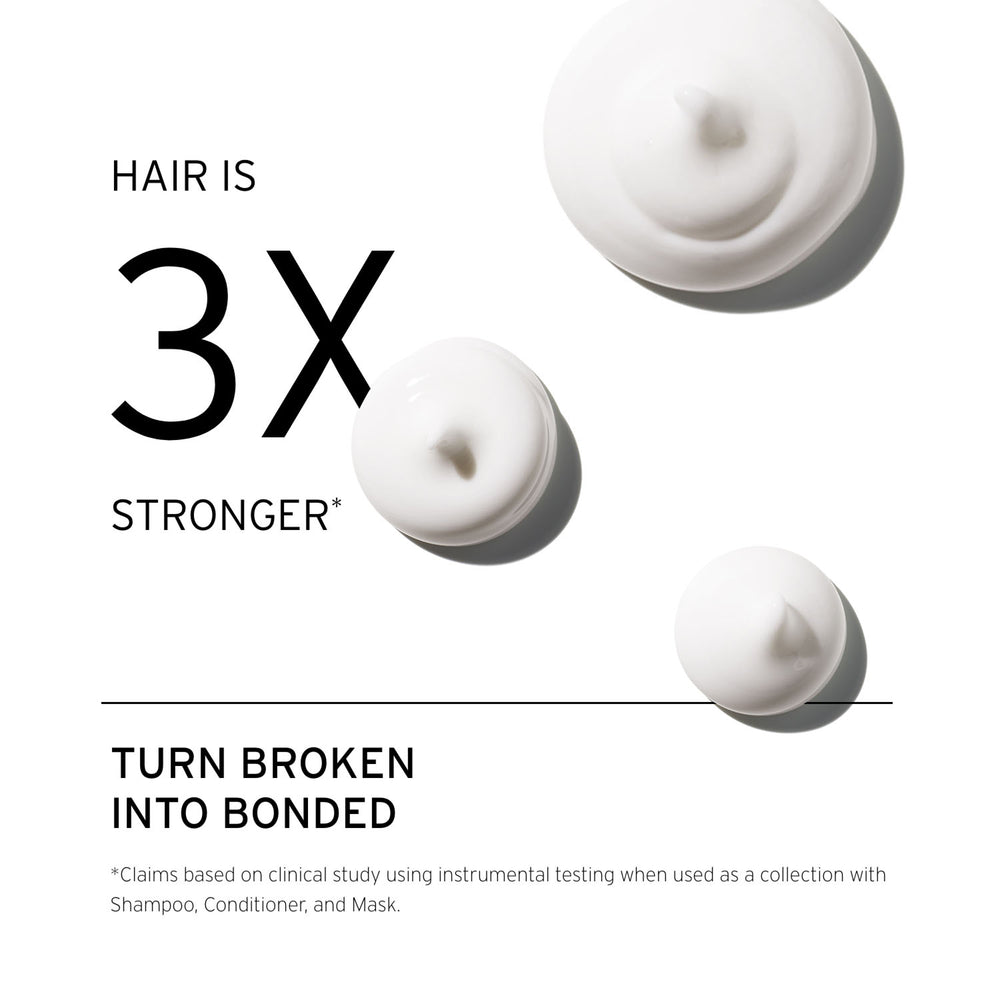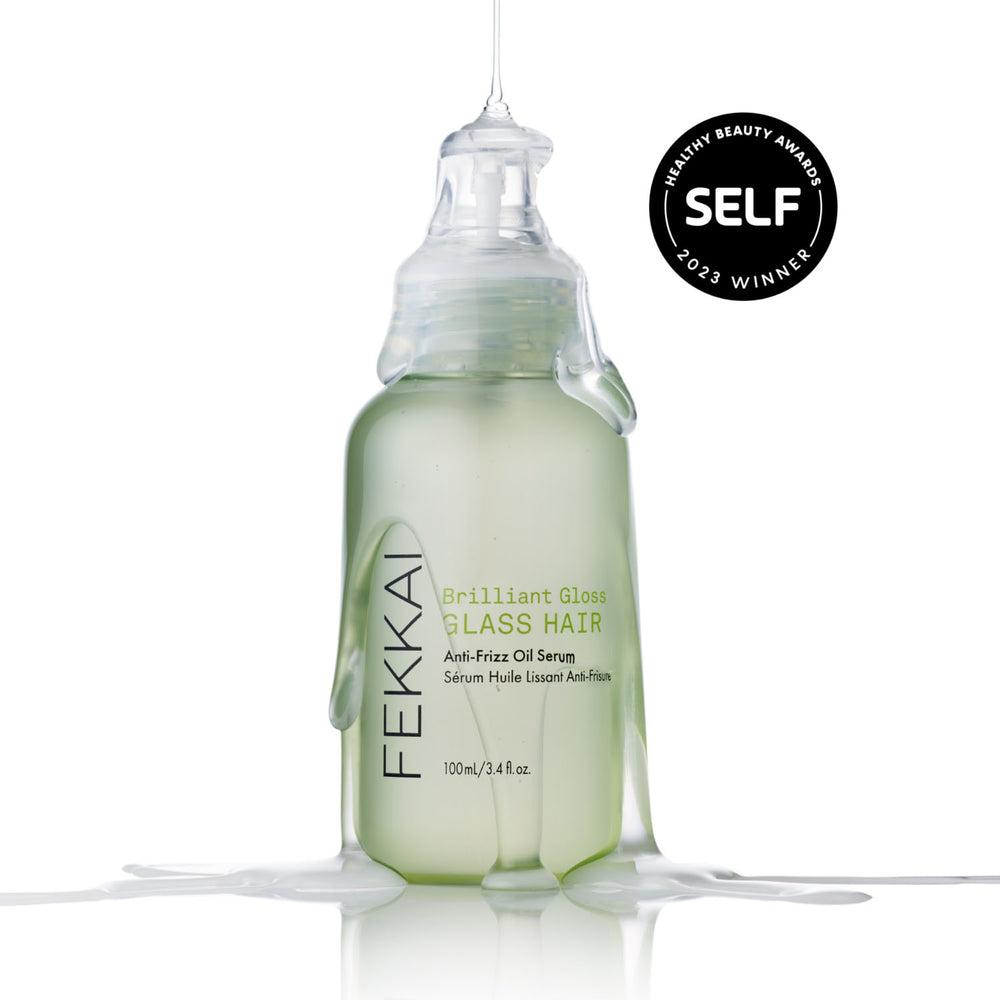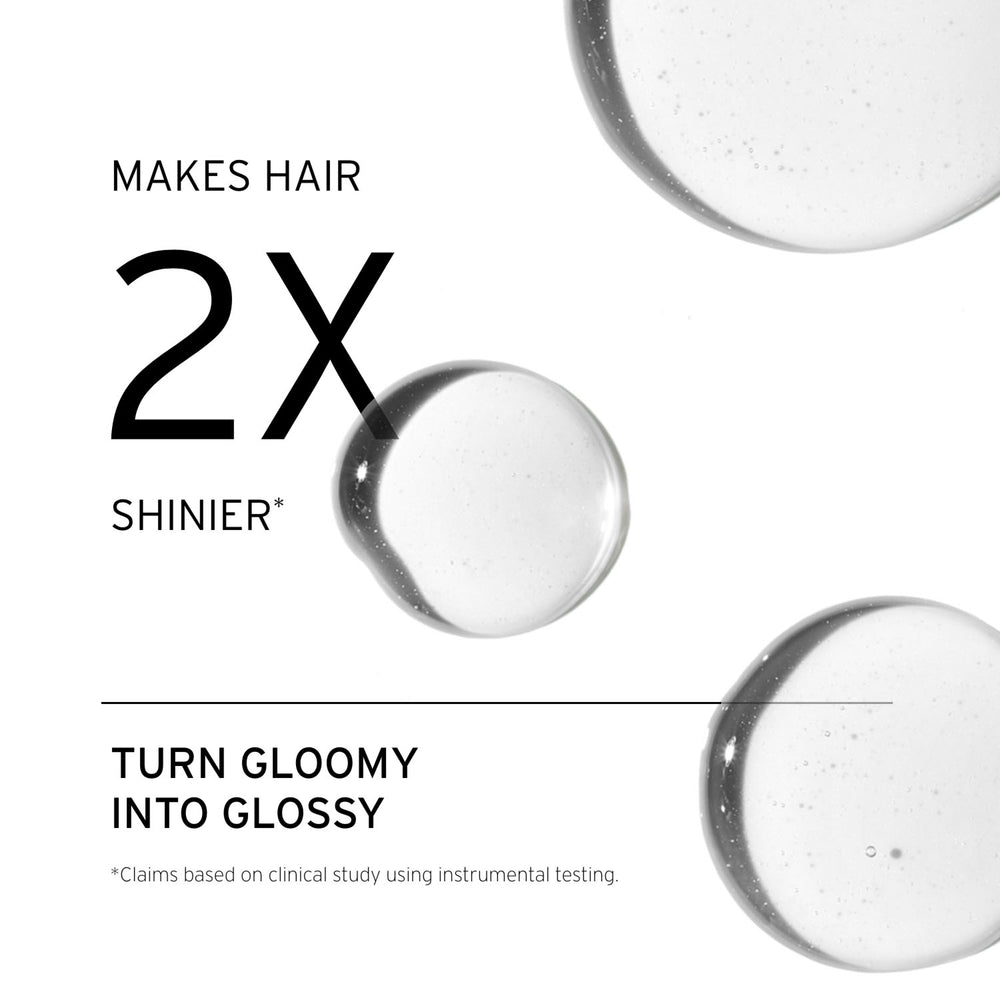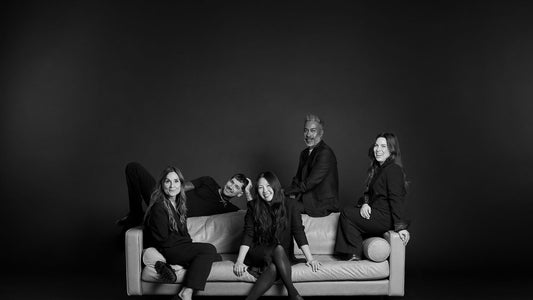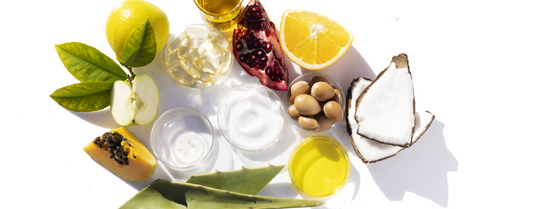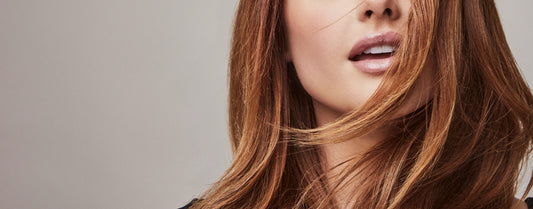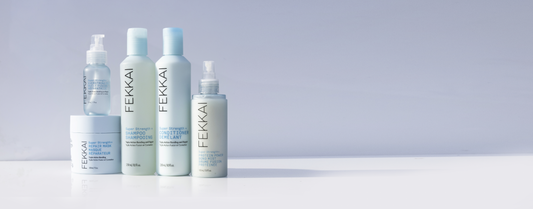I am a celebrity hairstylist, an entrepreneur, and a philanthropist who’s built my brand on taking care of others, body, hair, and soul. Join me weekly for The FEKKAI Life, a series of relaxed, intimate conversations with free thinkers, business leaders, and creatives who’ve used their passion to change the world for the better. Available wherever you find your podcasts.
Frédéric Fekkai: Hi, I'm Frédéric Fekkai and welcome to The FEKKAI Life, a podcast about some of the most impactful causes of our time and the creative minds that power them.
Sarah Babington: Hi, my name is Sarah Babington. I'm an educator with Green Circle Salons and what clean living means to me is being mindful of my environment, what's within it, and always educating myself on how I can be better.
FF: To help us envision a radically eco-conscious future for hair salons globally, we are speaking with Sarah Babington, Global Educator at Green Circle Salons, a one-of-a-kind program dedicated to recycling and reducing beauty waste.
FF: Good morning, Sarah. How are you?
SB: Good morning. I'm fabulous. Thank you so much for asking, how are you doing?
FF: Good. Good, good. Well, first of all, let me introduce you quickly because I'm really, really happy to introduce you to the audience here on the podcast The FEKKAI Life. How did you get into Green Circle Salons company and why?
SB: That's a great question. So previously I was a director for a hair care company, a professional hair care company. And I had met Shane who was, or who is, the CEO of Green Circle at an ABA event, which is a trade show up in Canada. And when I had heard about what he was doing and this mission he had, I thought it was absolutely incredible and I had to be part of it in some capacity. And so I started looking at if there was an opportunity for the brand I was working with to partner with Green Circle. And at the time I think it just wasn't a good fit, but you know, him and I had kept in touch. My educational background, so I did a Bachelor of Arts degree in Sociology, and many of the courses I took were on sustainability. And so for me, this was such an easy marriage of two of my passions. So, you know, it was just about meeting Shane, you know, keeping in touch with him over the years and when something did eventually open up, I moved over to Green Circle and it's been such an amazing experience for me.
FF: Great. So how long has Green Circle Salons been in business or founded? When was it founded?
SB: It was founded in 2009 in Toronto. It didn't take long to get the business up and running. There is a lot of people that are passionate about both of these industries, both sustainability and the environment, as well as the salon spa and barbering industry. And so currently we are coast-to-coast across Canada and the United States servicing thousands of salons.
FF: I'm curious to know how you became involved with Green Circle as an educator. How did you train, tell us a little bit about that. Was there a moment when it occurred to you the impact of all these single use item and the trash that goes into our environment?
SB: Yeah, that's a great question. So at Green Circle, we do a ton of research. We actually have an entire innovation team with very highly educated and intelligent individuals working there. A lot of the training, I mean, you know, you can know a lot about sustainability. You can know a lot about the salon industry, but these facts and figures, a lot of them come from the research that was conducted. That's a heavy part of the training at Green Circle. Getting my hair done, when I do my balayage, the foil that's used is, you know, when it's condensed and crushed up, it's about the size of a basketball—and that's not a unique experience. I think sometimes it's very difficult to digest what 420,000 pounds of waste is. And correct me if I'm wrong, I'm sure that you can't conceptualize that. I can't conceptualize that number. It is just so vast. And so for me, you know, looking at it at the micro level at an individual's amount of waste and sure every client that comes in is not necessarily getting a balayage service, but there are thousands and thousands of these services being done daily. And you know, as a result, you can kind of extrapolate and look at what that would look like and kind of imagine what that would look like. The other thing to consider is the waste that is created in this industry is full of chemicals. So not only is it just bulk, but it's also quite hazardous bulk. And so it needs to be managed properly.
FF: I introduced Green Circle Salons to my management team, because I read an article one day that a friend sent me. I want to make sure we explain what Green Circle Salons does because we know in salons, there is a lot of waste, a lot of single use items. There's a lot of equipment that we need to protect ourself and the customers. So the glove, plastic and aluminum foil, and so on. Tell us a little bit what Green Circle does toward this.
SB: So a little bit of what we do is consulting businesses on practices. We provide them with the verbiage and material for them to share their sustainability efforts with their clients. And the bulk of what we do is actually diverting and repurposing around 95 percent of the salon's total waste. So when I talk about diverting and repurposing, what we do is we collect the material and we repurpose it into to make new things. Typically salon waste goes straight into landfill. It's a huge problem in our industry. There's about 420,000 pounds of waste in North America going to landfill every single day, which equates to around 877 pounds every single minute. So it is quite a bit of waste. And so if we can divert 95 percent of that, I mean, the impact on the environment is huge.
FF: Yeah, it's frightening. When we get all these numbers of how much waste, how much trash we producing a day, it's stunning. How does any salon found out about Green Circle? Number one. And number two, how does the salon, how can a salon build a sustainability program like Green Circle from the get-go in their business model?
SB: That's a great question. So of course, you know, we have a wonderful marketing team that's getting the word out there about what we do, and that drives a lot of people towards our website to learn more. I think a lot of it is also word of mouth. I think the salons that we do have on board are, you know, very happy with the program. They're happy with their success on the program. And so we do get a lot of people that learn about our program through other salons that they're networking with. I would say if a salon is interested in being mindful of their environmental impact, the first step would just be, you know, follow us on Instagram, see what other salons are doing, see what we're all about, visit our website. If you go to greencirclesalons.com there's actually a button at the top where you can put in your information and an educator like myself would get in touch with you, you know, to provide you with some information about the program.
FF: So how does a salon get incentivized or excited to do the program? How do they get into you?
SB: We're not here to sell people on something, we're here to provide us a solution for a problem that they are aware of. So the excitement, a lot of the time it starts just within themselves. We get a lot of people contacting us saying, you know, it's taking me a lot of work, but I'm actually bringing my recycling home with me and I'm trying to do the best that I can and I just want to do better and how can I do better? So a lot of it is that, but the other piece it is when they learn about how we run and what we do with these materials, a lot of the excitement comes from that as well. So I'll give you an example. You know, we have a ton of hair in the salon industry. About 63,000 pounds of hair is put into a landfill every single day. And so with the thousands of members we have on board, you can imagine the amount of hair that we collect. And so we've had to participate in a number of projects, one of which is to create hair booms, which essentially is a stocking material filled with a mulch of hair. And that's used for oil spill cleanup. The thing about hair is hair absorbs oil very well. And because of the structure of the hair and the way the cuticles lie, it actually holds the oil in quite well as well, which makes it a much better resource for oil spill cleanup than a traditional cotton boom, for example. So that's one application, but there's tons more. We have, as I mentioned, an entire innovation team that has partnered with Virginia Tech to create a biocomposite plastic. So it looks and feels like plastic, but it's made in part of Green Circle Salons' recycled hair. And so the first application of this biocomposite plastic will be the actual sorting bins that go into the salon, which is really cool because when their clients say like, "Hey, what are you doing with my hair?" They'll have this tangible piece that they'll be able to interact with that's actually made in part of Green Circle Salons' recycled hair. So it's not just about us taking the material. I think a lot of the excitement comes through the innovation and what we're actually doing and how we're repurposing the material. And, you know, we're doing it in such a way that recognizes the sustainability hierarchy of first reducing then reusing then recycling and then lastly waste to energy. So yeah, I think a lot of that is quite exciting as well.
FF: It's so funny because I saw a documentary about a year ago in France, actually some French hairdresser filling the stocking with hair and on the ocean as a link, like a chain to clean the oil spill, people are getting excited by that and using the program as well. Is there a way of having a symbol, a sticker, a symbol on the website or a sticker in salons so that people can start to ask questions, what does it mean? And educate people, both customer and the staff.
SB: Yeah, absolutely. So when a salon does sign onto the program, there is a marketing kit that comes along with it. And the reason is, we recognize that there's a huge market for this. I mean, you can take a look at any industry. If you go into a grocery store, you've got your conventional laundry detergent and your eco-friendly biodegradable laundry detergent, and it's not there to take up space. It's there because there's a huge market and demand for these types of products. And so when a salon joins the Green Circle Salons program, they are provided with all the tools they need to share with their clients that this is what they're doing. As well, we have a directory, so they would be listed in our directory. And the goal of that is to connect clients who are looking for certified sustainable salons with those salons in their area, which is fantastic. So yeah, when a salon does join, they get all of the marketing material. They need to make sure that they're advertising themselves and taking advantage of the fact that they are sustainable.
FF: Great, great, great. And do you have a sticker?
SB: So you get a sticker for the window. We have mirror clings as well.
FF: Great. So Green Circle being based in Canada, which is obviously a different political climate than the US when it comes to how climate change is being managed, how has that affected the growth of Green Circle? And what's the ability to achieve in both countries?
SB: That's an excellent question and something definitely we think about all the time. In Canada, the advantage is that climate change isn't questioned. People don't question it, it is. And it's something that we collectively understand, that it's an issue that needs to be addressed. I think in the United States, the challenge is that some people do not subscribe to climate change for whatever reason. And to them, I would use a different approach because I don't think it's only about climate change. I think a lot of it is just about gratitude. I think, you know, as a young child, we can even appreciate the difference between right and wrong and throwing a bunch of stuff in a hole. It just, you know, from a gratitude perspective of everything that the earth does for us and provides to us, I think worst case scenario, we're just providing a little bit of gratitude back to this thing that sustains us and give an opportunity to not be dumping our stuff in a big hole, if that makes sense. So I think it's just a matter of the approach. You'd be surprised though, because even in areas that you would think this wouldn't be as successful, we do still find these groups of people that are so passionate about the environment and that are subscribing to scientific research and evidence about change. So I wouldn't necessarily paint over every area with the same brush. But definitely I think we can approach this from both of those angles.
FF: So I'm curious to know how Green Circle has adapted and reacted to the pandemic and perhaps guides others?
SB: The first thing that we did is when we had the universal shut down, I'll call it, we actually put the accounts on hold for them. We know that there was a lot of anxiety about, am I going to have to pay this, or when am I going to have to pay that? And so to me, it spoke a lot of our character and it was a very proud moment for me with Green Circle. Because again, we're dealing with human beings and business owners that were quite concerned. So I thought that was handled amazingly. The other thing we did that again, I couldn't be prouder of, we pivoted. So our concept is built around diverting 95 percent of a salon's waste, if not more, in some cases diverting all of the waste. And so with the pandemic, there was this new stream of waste that we hadn't seen before. Things like masks, gloves, to some extent disinfecting materials and things of that nature. And so we very quickly came out with a PPE recovery kit. They can be purchased online. You don't even have to be a salon to get one, they're open to every industry and anyone who wants them. I actually have one in my garage for our personal PPE, it's handled separately. So you put the material into a bag inside the box and the box itself gets shipped back to us. We're very mindful of not handling the material within the box as well. And so that's another thing I'm very, very proud of. So again, if anyone is looking to get one, you can go to greencirclesalons.com, click on PPE recovery, and then follow the prompts there.
FF: Great, great, great, great. Once you collect the PPE, what happens after that? What do you do with it?
SB: Once we get the PPE material, it goes to a waste to energy facility. And so essentially all of that material, because it doesn't have the same recyclability as a paper, plastic, or metal, it's going to be used to create clean electricity. And it does that by transferring energy into several different forms until we get to electric energy. So it's an incredibly interesting process. If you want me to, I can give you a quick little "how it works." Essentially we take the material. It's first spun to remove any water. The water is purified and put back into the water system. Then the material is burned. The heat from the burning of that material is in close proximity to a series of pipes that contain water. So when water heats up, it produces steam, steam can very easily be pressurized, right? So if you picture your kettle on a stove, that whistleblowing, same kind of idea. So with that pressurized steam, it spins a turbine containing a magnet and that's how the electricity is generated. The by-product, as I mentioned, is clean water. We've got some fumes off of the burning of the material, which is filtered. And the leftover is ash. So the ash is sifted to remove any recyclable metal material and the rest of the ash can be repurposed in construction material. So by managing all of the waste and creating electricity, we are able to convert that material into clean and usable electricity.
FF: Great. That's a wonderful 360 here. At FEKKAI, we made a huge effort to invest in recycled material and that's really changing our outlook. Are there any resources you recommend for anyone looking to understand the impact beauty waste is having on our planet?
SB: Yeah, for sure. And I don't know that it's necessarily recommending a specific brand, although there are definitely brands that come to mind. I think the first thing we need to understand is recycled material means that what you're using has already been used once before and when you're looking for different products, whether it be a bottle of laundry detergent or cleaning products or whatever, you can actually look for bottles that are made up of post consumer recycled material. And it's typically labeled right on the bottle. There are other companies out there, like for example, Ecoheads are fantastic, they reduce the amount of water but also increase the pressure. And so what happens is you're using less water to get the same result. And I think those are fantastic, but of course, in doing your research, I would just be mindful of those components when you're looking at brands to support and partner up with for your business.
FF: Yeah. I would think that anybody who signs up to have Green Circle in their businesses would obviously be careful on how to select brand and product and material equipment to impact the eco-friendly environment. Where can our audience engage with Green Circle and you online?
SB: I would say definitely follow us on Instagram. So you can follow @greencirclesalons. If you'd like to follow me as an educator, you can follow me @sarah.is.sustainable. And I have many resources for the salons that I onboard there. So if you wanted to take a look at what types of material or media comes out, that's a good option. One thing though that you said that I wanted to touch on, the thing with sustainability is it's about being better, not necessarily being perfect. And so while we want salons and encourage them to lean towards certain types of products what we need to keep in mind is sometimes there is preference and that preference isn't without value. And so what I typically tell our salons is, you know, we're not asking you to flip your whole business upside down in order to be sustainable. What we are asking is we can start with waste diversion, absolutely. And slowly become more mindful of our impact. And if those decisions, if those values affect some business decisions that you're making, then that's for the positive. But I would never tell a salon, for example, if they were in love with a specific product line or a specific cleaner that that one's bad, and we absolutely shouldn't do that because the idea here is we can make massive amounts of change slowly, and it's absolutely valuable. And I wouldn't want to deter anyone from implementing sustainability because they think they have to do away with things that they absolutely love. That's certainly not the case. Waste diversion is an easy first step. We can take 95 percent of a salon's waste and the rest will follow suit. Do you know what I mean? Like, I wouldn't want anyone to feel like they have to make these drastic changes. Our program is so simple. It's very conducive to the salon environment, and it's an amazing first step, but in terms of recommending certain products or you know, demanding that people switch over to use this versus that, that's not at all what we do.
FF: I'm fascinated by that. Is Green Circle, I'm just curious, just focused on North America or globally, or do you have a partnership, affiliation with other groups?
SB: Our focus is on North America, although we do participate in other international events as well as we do collaborate with companies in other areas of the world that may be doing similar things to what we do. So our focus is on North America and Canada and the United States.
SB: What's next for Green Circle, and for you?
SB: For sure, I see myself living and breathing this company indefinitely. I have never been happier to be here in whatever capacity that I'm needed. I think I thrive as an educator. In terms of Green Circle, I'm excited to see what's coming out in innovation. You know, things tend to take a long time. We go to the drawing board, so you have to make a prototype and then we test it out. You know, things generally take a little bit of time in order to perfect and finesse. I'm excited to see what the innovation comes out with. After these biocomposite bins are finished, we're constantly innovating partnering with really cool people who are doing really cool things. And so for me, that's what I look forward to seeing.
FF: Green Circle's work makes a sustainable future for salons not only attainable, but also actionable. Smart consumers will accept nothing less than a beauty routine without damage. And it's our duty as salon owners to keep pushing for a greener future. I'm Frédéric Fekkai, and this is The FEKKAI Life. There are more exciting guests yet to come this season and I can't wait to share them with you.
Follow Frédéric Fekkai on Instagram and LinkedIn.
Follow FEKKAI on Instagram, YouTube, TikTok, and Facebook.
Subscribe to The FEKKAI Life podcast on Apple Podcasts and Spotify.
